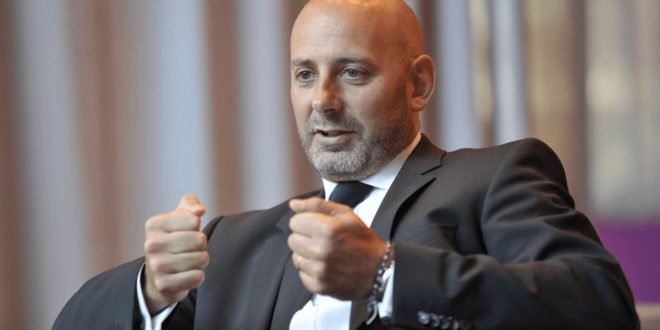As political machinations dominate French news, Laurent Lassiaz, CEO of France’s second largest casino operator JOA Group, speaks to Gaming&Co and SBC about accessing the digital sphere, land-based growth and strategic forks in the road.
Casinos play a very important role in France’s gambling landscape. With just over 200 land-based casino establishments dotted around the country’s coastal and thermal resorts, they act as world-famous symbols (think Monaco or Deauville) of style and status. But, just as importantly, they provide substantial amounts of public funds to local communities, in particular the smaller establishments that are situated in less famous locations.
Louder voice needed in a political minefield…
The surprise results of France’s legislative elections continue to dominate the news, but for Laurent Lassiaz, CEO of JOA Group, the third largest operator in France by revenue and second by number of resorts, the issues at play remain the same.
In their own way, those issues are also highly political, but Lassiaz and his peers would like to see online casino regulated in the “next 18 to 24 months”, with a stop, or at least a major brake, applied to the illegal casino operators.
Lassiaz is further invested in this by his positions as VP of the French trade body Casinos de France (CdF) and VP of the European Casino Association.
Referencing the CdF, it announced this week that it had appointed Grégory Rabuel, who joined Groupe Barrière as its new CEO in August 2023, as chairman of the trade body.
Rabuel believes the CdF “will need to make its voice heard more by public authorities” to step up the fight against illegal online casinos and reduce the operating and commercial “inequalities between the different gambling verticals”.
Casino Growth is a net positive for France
Casino growth in the past year has been strong, with official data showing that French gambling groups’ GGR went from €11bn in 2019 to €13.4bn in 2023, with a 3.5% YoY growth over the period.
French casinos recorded €2.7bn in GGR in 2023 (+8% YoY) and if the estimated €2bn GGR that the iCasino market generates were legal, Lassiaz notes that the vertical would generate close to 40% of the country’s overall gambling GGR.
The reasons for the vertical’s good health are twofold. “Following COVID, many people made some arbitrage on how they spend their money. When it comes to leisure, they are reducing the number of holidays and plane journeys they are taking” and this leaves them with disposable income to spend on entertainment options that are closer to home
The second reason is that the industry has been investing heavily in capex to reinvent the product”. So rather than entering what in the past might have looked “like a small factory with a few slot machines in it”, customers can now enjoy “nice sports bars, restaurants and quality entertainment options” – Lassiaz notes that of the 3,000 staff employed by JOA Group, more than half work in non-gaming roles.
JADE offers an alternative
But as French casinos improve their offerings and can be proud of the growth they are creating, the flipside of this argument is that in the digital sphere, unregulated online casinos are booming.
“That’s precisely what we try to explain to the government,” says Lassiaz, “and on top of the lost tax revenues, there are up to 4 million online casino players who are unprotected.”
Lassiaz adds that he and his colleagues have been educating French politicians on the need for iCasino regulation and many MPs agree that “the right way to (move forward is to) legalise it”, even if currently it isn’t a priority.
The situation is also impacted by online market leaders such as Betclic and Winamax, who, along with international groups, are lobbying for a totally open market.
As a reminder, as part of their JADE project to regulate online casino, CdF members have called for a three-year exclusivity period before allowing the online groups to enter the market.
The JADE model advocated by CdF may seem alien to anglophile observers, but Lassiaz points out that it is in place in Belgium and Switzerland and that many of the best performing brands in Italy or Spain have strong land-based presences.
Towards a Click-and-Mortar future
“It’s really a click-and-mortar model and I personally believe that the future of this industry will see customers enjoying such a complimentary (online-offline) experience. And that’s the reason we are pushing in this direction.”
Lassiaz is also open about the potential corporate moves that could be triggered by the regulation of online casino in France. “It would make us a good (acquisition) target” for French or international online operators wanting a presence in the market.
He adds that French brick-and-mortar casinos have shown their expertise with the strong growth they have generated in recent years.
“The success of groups like Gaming 1 and Circus (in Benelux countries), Lottomatica in Italy or CIRSA in Spain is testament to this and online groups are fully cognisant of this,” he adds.
Lassiaz says the French and broader European industry must continue to educate politicians about its activities and how it contributes to local economies and that the focus in France is still on online casino regulation in the next 18-24 months.
As for how it can garner political support for this, he says “it must come from the top”.
“That’s what happened with JONUM and that is what we are working on… It is worth putting in the groundwork with regard to education and awareness because it will have to go through parliament and be voted on and will filter down from the top.”
Don’t forget to subscribe to our Telegram channel!










